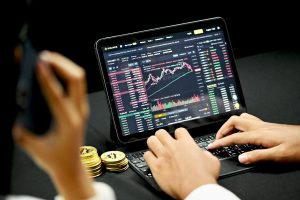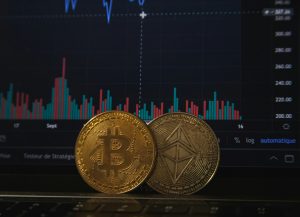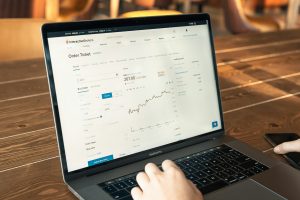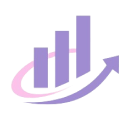Introduction to Commodity Trading Online in Crypto
As digital assets continue to expand into diverse sectors, online commodity trading has emerged as a popular way for crypto traders to diversify and expand their portfolios. Traditionally, commodity trading involved physical goods like gold, oil, or agricultural products. With the rise of digital platforms, however, commodities can now be traded online, including commodities represented as tokenized assets on blockchain networks. Online commodity trading provides access to valuable resources and is an excellent opportunity for traders looking to broaden their investment horizons. For those interested in crypto commodities, platforms like TexTrades offer comprehensive insights and resources for making informed trading decisions.
In the crypto space, tokenized commodities represent tangible assets, allowing traders to buy, sell, and hold digital representations of physical goods. These commodities are backed by actual assets and can be traded similarly to traditional commodities but with the efficiency, speed, and transparency provided by blockchain technology. By bridging the gap between traditional commodities and blockchain, online commodity trading in crypto is quickly gaining traction.
Understanding Commodity Trading Online Platforms (Poses)
Online commodity trading platforms in the crypto market allow traders to invest in tokenized assets representing real-world commodities like gold, silver, crude oil, or natural gas. Unlike traditional commodity markets that often require physical storage and logistical considerations, tokenized commodities simplify trading. When purchasing a tokenized commodity, traders essentially buy a fraction of the asset represented digitally on a blockchain, streamlining access to these assets and reducing the entry barriers typically associated with physical commodity trading.
You Might Interested in: Future of AI in Crypto
Commodity tokens often follow the spot prices of their physical counterparts, which means traders can benefit from fluctuations in commodity values without dealing with the logistical issues of physical ownership. For example, trading tokenized gold enables investors to benefit from price changes in gold without the need for vault storage or transport logistics. With platforms offering options to trade commodities in crypto, traders can access both traditional and digital markets, enhancing portfolio diversity and resilience.
Another type of commodity trading popular on online platforms is commodity futures trading. This strategy allows traders to speculate on the future price of a commodity, providing opportunities for profit as market conditions shift. Futures trading is widely used for hedging against price fluctuations, making it a versatile tool for traders with advanced market knowledge. Crypto platforms offering commodity futures enable users to leverage price changes without needing to purchase or store physical assets, which is advantageous in volatile markets.
Benefits of Commodity Trading on Online Crypto Platforms
One of the primary advantages of trading commodities online, especially in a crypto context, is the convenience and accessibility it offers. Traditional commodity trading often involves significant investment and logistical costs. However, online platforms make it possible for traders to buy and sell tokenized commodities with ease and efficiency, eliminating the need for physical storage. According to recent data, over 60% of commodity transactions on crypto platforms are related to precious metals, demonstrating the popularity of accessible, digital asset-backed commodities.
A second major benefit is risk diversification. By including commodities like tokenized gold or oil, crypto traders can balance out the volatility of their portfolios. Commodities generally experience price fluctuations based on supply and demand rather than market speculation, offering traders a more stable investment option. Research shows that adding commodities to a crypto portfolio can reduce overall risk by up to 30% while maintaining consistent returns. This combination of stability and potential for profit makes commodities an appealing choice for traders looking to hedge their portfolios against the highly volatile crypto market.
Another key advantage is global trading opportunities and around-the-clock access. Crypto platforms that support commodity trading operate 24/7, offering traders the flexibility to execute trades anytime. In contrast to traditional commodity exchanges, which often follow business hours, crypto commodity trading allows for seamless, uninterrupted trading. This continuous access is especially valuable for traders who want to respond to breaking news or market events affecting commodity prices without being restricted by exchange hours.
Read Also: Top 5 Crypto wallets
Tips for Succeeding in Commodity Trading on Online Platforms
To get started with commodity trading on online platforms, one of the most valuable tips is to research the commodities you’re interested in. Unlike stocks or cryptocurrencies, commodity prices are influenced by a unique set of factors, such as weather patterns, geopolitical developments, and changes in supply and demand. For example, the price of oil may be affected by political events in major oil-producing countries. A thorough understanding of these variables allows traders to make more informed decisions, positioning themselves effectively in the market.
Another crucial tip is to use market analysis tools to track commodity trends. Many online platforms offer technical analysis tools that display historical and real-time price data for commodities, which can be extremely useful for identifying trends. For example, studying moving averages and price patterns on a chart can reveal potential buying or selling opportunities. Additionally, platforms such as [TextTrades](https://textrades.com/) provide in-depth guides and market insights that can enhance traders’ analytical skills and help refine their trading strategies.
For those using leverage or futures contracts in their commodity trading, risk management is essential. Leverage amplifies both gains and losses, so traders must implement stop-loss orders or use conservative leverage ratios to limit risk. Many platforms allow users to set stop-loss and take-profit limits, enabling traders to control their exposure and manage their trades effectively. A disciplined approach to risk management is especially critical in volatile markets where price movements can be sudden and unpredictable.
See here: Crypto Trading Strategies
FAQ: Commodity Trading on Online Platforms in Crypto
1. What is online commodity trading in crypto, and how does it work?
Online commodity trading in crypto involves trading tokenized assets that represent real-world commodities, such as gold, silver, or oil. These digital tokens are backed by actual assets, allowing traders to buy, sell, and hold commodities on blockchain-based platforms without needing physical storage or handling.
2. How does commodity trading online differ from traditional commodity trading?
Commodity trading online simplifies the process by digitizing assets, making them accessible to a global audience without requiring physical ownership. Online platforms also provide 24/7 trading access, unlike traditional markets with limited hours, allowing traders to respond to price movements around the clock.
3. Is commodity trading less risky than trading individual cryptocurrencies?
Generally, commodity trading is considered less volatile than individual cryptocurrencies because commodities are influenced by supply and demand factors rather than market speculation. Adding commodities like tokenized gold or oil to a crypto portfolio can offer stability, helping traders balance risk.
4. Can beginners engage in online commodity trading on crypto platforms?
Yes, many online platforms offer beginner-friendly interfaces for commodity trading, providing access to educational resources and analysis tools. By studying market trends and using available resources, beginners can gain a foundational understanding and start trading in commodities with confidence.
5. Are there additional fees for commodity trading on crypto platforms?
Some platforms may charge transaction or management fees for trading commodities, but these are often lower than the costs associated with traditional commodity markets. Tokenized commodities also reduce storage and handling expenses, making it a more cost-effective option.
Conclusion: Expanding Your Portfolio with Online Commodity Trading in Crypto
Online commodity trading offers a unique approach to diversification in the crypto space, allowing traders to access physical assets digitally while taking advantage of market efficiencies and global accessibility. With the added benefit of stability from commodities, crypto traders can balance the volatility of digital assets with investments in tokenized versions of gold, silver, and other resources. For traders interested in learning more about commodity trading strategies and risk management, TexTrades provides essential tools and insights for effective portfolio growth. By leveraging the unique aspects of commodity trading platforms, traders can expand their reach in the market, explore various investment strategies, and achieve well-rounded, resilient portfolios that align with both short-term and long-term goals.





